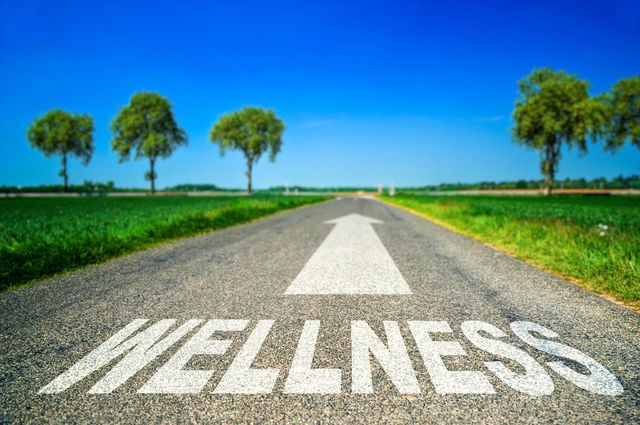Why Wellness Programs are Investment Worthy and Add Value
6 experts shared their view
As spa development and wellness momentum continue to thrive, understanding the nuances associated with advancing this new growth is acute to evolving meaningful and successful investment choices. This viewpoint asks panel experts to share why these programs are worthy of investment and how they add value to hospitality experiences. Various challenges related to COVID-19 have accelerated prevalent needs for new operational, and technological changes. Whereas the ripples of 2020 are expected to reverberate for a few years. This viewpoint also shares thoughts on how companies, stakeholders, and developers can enhance existing businesses and make tactical investments for 2021 and beyond.
It is difficult to measure the ROI of wellness programming because much of it is intangible, but I believe they are a strong investment and that they do add value holistically. By “holistically” I mean they add value in a number of ways that transcend the departmental profit of the programs themselves. A brand's wellness offerings show customers that they care, inspire employees to join and stay with the brand, and appeal to the consumers' highest values. Said another way, these programs bring energy to the brand that attracts customers, employees, and the media.
Because this value is difficult to measure, wellness programming tends to be undervalued by the market, which makes wellness programming an even better investment as it is easy for brands that believe in wellness to set themselves apart from their competitors in this arena, creating greater goodwill with consumers and colleagues.
Wellness, however one defines it, continues to be front of mind for many of us as we navigate through this uncertain period of the pandemic. On a positive note, we are all becoming more aware of our personal wellness needs, whether this is spiritual, emotional, physical, or any other area of self-care. With continued demand for wellness services in what has historically been a 'high touch' area, we are now forced to practice our profession in a way that is low touch and high connection. We are continually stretching beyond the norm to best deliver on this in an authentic and sustainable way.
These times call for strong leaders that are able to have a paradigm shift from their past practices and be far more empathetic to colleagues and guests alike as we deliver on the new normal. Communication with colleagues and guests is evolving as we re-assure them of our 'zero tolerance' for compromise of sanitization standards, and our commitment to service protocols including touchless technology, increased outdoor/open-air experiences where possible, experiential activities, mindfulness initiatives, and rapid testing for colleagues. We all must embrace the philosophy of living younger, longer! Health & Wellness focus will continue to be part of the guest journey and the industry must remain sensitive to the consumer through EQ. This will ensure that we deliver on the promise that transformation can be fun, safe, and personally rewarding.
The COVID-19 pandemic made wider audiences recognize the importance of health, wellbeing, and harmony. Either physical, social, or emotional. I would like to challenge the hospitality sector on this note. Does not the word 'hospitality' indicate the importance of guests' safety and comfort by definition? If this was the case, suggesting that hospitality would need to pay more attention to wellness or wellbeing does not just admit that the hospitality industry could have done more already?
I strongly believe that wellnessification of hospitality services may not automatically result in higher rates and returns. It is more likely that wellnessified services all across the board can become entry-level expectations. Guests do not seem to find such developments as an add-on, more like the new minimum. This can mean a challenge to any style and category of hospitality provider. The well-wired services, amenities, and solutions can make hospitality providers more competitive when the world emerges after several months of lock-down. As the findings of the pilot research by Wellness Tourism Association and Health Tourism Worldwide suggest travelers look for wellness-inspired and oriented solutions, destinations, and brands. They are more aware and open to learn and try more.
New development should avoid looking at wellness as a satellite or as a department only. This may lead to the underestimation of TRevPAR, overdeveloping, and overspending on space resulting in an underperforming GOP and suboptimal guests' wellbeing.
The healthcare-hospitality-wellness conversion appears to be paving the way of actually reaching hospitality revolution 4.0.
The traumatic events of 2020 have shed new light on essential things. The energy of this year has also provoked new dynamism pertaining to a broad spectrum of societal, world, and personal lifestyle goals. Amongst vast uncertainty and economic turbulence, there is a widespread and deeply felt sense of loss, nostalgia, and industry vacillation. The convergence of these conditions has rapidly accelerated already present and increasing sociodemographic-lifestyle, and wellness demand characteristics.
As we look into 2021 and beyond, travel and hospitality segments are likely to face further unfamiliar territory. Many of these challenges will warrant helpful, yet inescapable changes. The hospitality market faces a significant intersection of essential innovation. The need to model new and different guest experiences that exist to improve the emotional, physical, and spiritual foundations has become increasingly important and valuable. Whereas there are distinct benefits in rural areas and nature, properties set in urban areas may need to consider a more dramatic approach to wellness propositions to unlock the potential of these program integrations.
The necessity to invest in and accelerate well-being is upon us. While these investments can be weighty, there are rewarding ways to phase, scale, and activate programs that evoke and build meaning and trust, while also providing a strong ROI. These actions add intrinsic value, create new traditions, and support guests in ways they may need most.
Before addressing the questions of investment, let us first consider the underlying aspects of the massive changes that society is experiencing. There is no doubt, COVID-19 is nudging us to look within. When we first went into lockdown in the spring, the opportunity to slow down was a first for many. It was also a first, for swathes of the population to spend regular, even frequent time, in nature.
Fast forward. By now we sense a collective shift into an ever-more attuned level of compassion and care, for selves and for others. The slow-down has initiated a new awareness for our own emotions and feelings. Our comfort in solid structures as we know them are crumbling. We are seeking new direction and answers on how to live life. It is as if we are responding to new-born energies around exploration and learning.
We are asked to embrace a shift towards a new form of hospitality pointing towards something deeply personal and non-tangible. In this new age, we will be less inclined to “live for what is outside of us”, seeking validation in material things or in pleasurable experiences, and more inclined to focus on our inner wealth – to love, to find joy and be healthy. This requires transformation of business models and KPI's measuring that which is not tangible. Investment needed? Yes, not only investment in assets but investment into gaining a profound new understanding and a shift in consciousness.
2020 brought to the forefront the uncertainty of life. This state of mind made us question the quality of our lives and focus on our vulnerability. The result is an all-time high level of interest in our health and wellbeing. Hotel spas are poised to support this human need, one option is with wellness programs.
Demand for wellness programs is coming from consumers as evidenced through continued demand for online tutorials that teach ways to improve our well-being and success stories of spas worldwide that, when allowed to open, have seen guests return with confidence. We've acknowledged that it is okay to put health first, so in 2020 we put new practices into place and formed wellness habits that we're reaping the benefits of.
A well-constructed wellness program increases occupancy and F&B spend as wellness guests are more likely to be captive users of the total hotel facilities if the program and hotel are aligned. There is a great opportunity to take a whole hotel approach to wellness programming and bring together facilities and amenities that work in synergy with your core wellness space – the spa.
To be successful a solid reputation has to be built. There are many factors to achieving this but possibly the most important is do you have, or have access to the right personnel? Wellness programs need skilled practitioners. If you don't have the level of skills required in the team sustainable new hires will need to be considered, or partnerships will need to be formed.






